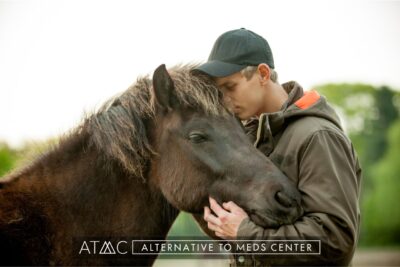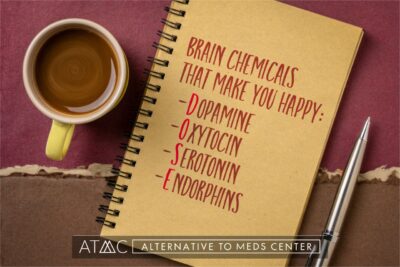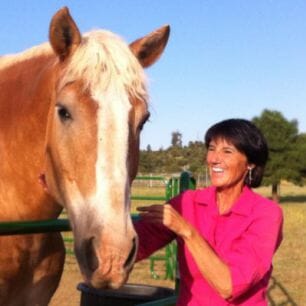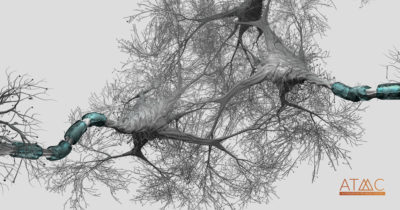Medically Reviewed by Libby Smith PhD
Table of Contents:
Gestalt Equine Psychotherapy and Equine-Assisted Therapy in Recovery
As a therapeutic approach, gestalt therapy focuses on the here and now. Living and experiencing the present moment, people investing in gestalt therapy may expose feelings that were previously hidden by other feelings, and they learn to better trust in their own emotions.

While the horses do not provide direct emotional support, they can help individuals process challenging emotions to reach a higher level of self-awareness. Through different horse-related activities or participating in an environment with horses nearby, many people find they can gain a new level of confidence and better emotional regulation skills. Incorporating nature creatively into therapeutic treatment, participants experience a creative and more in-the-moment approach to healing.
Although the presence of a large animal may intimidate people at first, there is a great deal of evidence of equine therapy’s efficacy.3 EAP has been shown to be beneficial for conditions ranging from anxiety, trauma, and PTSD to addiction treatment and drug dependency.
Benefits You May Experience with Equine Therapy
In our experience, Equine Therapy has the following benefits:
- Positive emotional growth. Being able to build a strong relationship with a horse helps people experiencing drug dependency to develop emotionally.4 Because all the emotions shared and felt during an equine interaction are candid, you can focus on the here and now and your emotional recovery. Positive emotional growth is key to long-term recovery.
- Understanding boundaries. Animals, much like people, establish their own boundaries regarding the activities and interactions they will consent to. By spending time with horses, you can practice learning what those boundaries are and ensure that they respect them to receive a positive outcome. In this way, you can also learn how to create and maintain your own boundaries. By building a give and take relationship with these horses, you build on your own understanding of boundaries, how they work, and why they are so necessary.
- Building connections. By growing a relationship with these majestic creatures, you can grow in your own ability to build connections with others. Even more importantly, you can experience what it’s like to feel needed in a relationship. By building connections, you learn to avoid internalizing and can better express your own needs.
- Nonverbal communication skills. While horses themselves cannot speak, they do give various non-verbal cues regarding their wants and needs. Watching for and learning about these cues helps you gain a better understanding of others’ nonverbal communication. In turn, this can help you navigate uncomfortable or difficult situations with more finesse. Horses don’t have the ability to lie; therefore, all communications with them are open and honest.
- Focus and resilience. While beautiful and magnificent, it is important to remember that horses are exceptionally large animals, sometimes up to 1,200 pounds. Because the margin of error is so significant when it comes to careful handling and proper care, focusing on the task at hand becomes important to keep oneself safe and connected. You must gain a horse’s trust, learning resilience in the process through careful handling and care.
While these aren’t all the benefits of equine therapy, they are some of the most significant. Healing from drug dependency isn’t just about quitting the drug. It’s also important to target your triggers and use better tools to cope with the mental blocks that can endanger long-term healing.
 The interaction between humans and animals has been shown to increase oxytocin in the brain, and higher levels of oxytocin have been found when humans interact with horses. Because of these greater levels of oxytocin, feelings of trust and empathy can become the focus. This is especially important for those with substance use disorder, as social skills, self-confidence, and support networks have often been negatively affected by the addiction.8
The interaction between humans and animals has been shown to increase oxytocin in the brain, and higher levels of oxytocin have been found when humans interact with horses. Because of these greater levels of oxytocin, feelings of trust and empathy can become the focus. This is especially important for those with substance use disorder, as social skills, self-confidence, and support networks have often been negatively affected by the addiction.8









